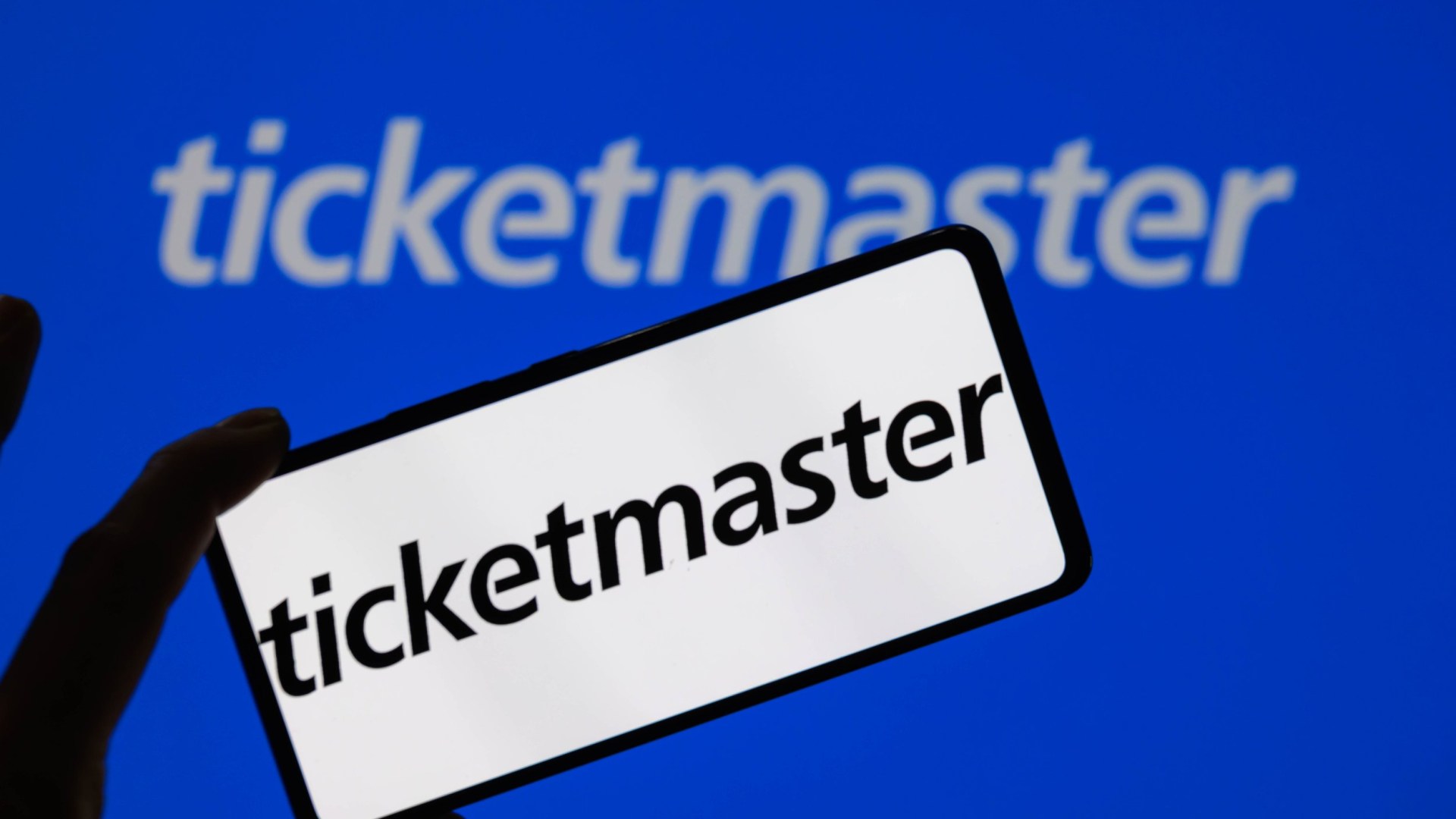Oasis Tour Audit: Did Ticketmaster Violate Consumer Protection Laws?

Table of Contents
Exorbitant Ticket Prices and Dynamic Pricing
The Role of Dynamic Pricing
Ticketmaster's dynamic pricing model, which adjusts prices based on demand, led to drastically inflated prices for many Oasis tour tickets. This practice, while legal in itself, raises serious questions about fairness and transparency, particularly when demand is artificially amplified, as many suspect was the case with the Oasis reunion tour. The lack of upfront price transparency left many fans feeling cheated and exploited, leading to significant backlash against both Ticketmaster and the band itself.
- High ticket prices exceeding the perceived value of the event: Many fans reported prices far exceeding what they felt was a reasonable cost for concert tickets, even for a highly anticipated reunion tour. This disparity between perceived value and actual cost is a key element in the consumer protection arguments.
- Lack of upfront price transparency for consumers: The dynamic pricing system lacked sufficient transparency, making it difficult for consumers to understand how prices were determined and whether they were being fairly charged. This lack of transparency fuels feelings of being manipulated by the system.
- Potential for price gouging due to high demand and limited supply: The high demand for Oasis tickets, combined with a limited supply, created a perfect storm for price gouging. Dynamic pricing, in this context, amplified the problem, allowing prices to escalate beyond reasonable levels.
- Comparison to prices of similar artists' tours: Comparing Oasis ticket prices to those of similar artists' tours of comparable scale revealed significant discrepancies, further supporting claims of unfair pricing practices.
Website Crashes and Bot-Driven Ticket Purchases
The Impact of Scalpers and Bots
Reports of website crashes and extreme difficulties purchasing tickets pointed to the impact of bot-driven ticket purchasing by scalpers. These sophisticated bots overwhelmed the Ticketmaster system, leaving genuine fans unable to secure tickets. This situation not only caused significant frustration but also raised questions about Ticketmaster's responsibility in preventing such activity.
- Evidence of bot activity and its effect on fair ticket allocation: Numerous reports and anecdotal evidence suggested the presence of bots, significantly impacting the fair allocation of tickets and giving an unfair advantage to scalpers.
- Ticketmaster's responsibility in preventing bot activity on its platform: Critics argue that Ticketmaster bears a significant responsibility for failing to adequately prevent bot activity on its platform, leaving fans vulnerable to exploitation.
- The impact on consumer trust and satisfaction: The combination of high prices and website crashes significantly damaged consumer trust and satisfaction with Ticketmaster's services.
- Analysis of Ticketmaster’s technological capabilities to combat bots: The incident highlighted the need for Ticketmaster to invest in and improve its technological capabilities to detect and prevent bot activity more effectively.
Potential Violations of Consumer Protection Laws
Relevant Legislation and Case Law
Ticketmaster's actions during the Oasis tour ticket sales may have violated several consumer protection laws at both state and federal levels. Potential violations include those related to antitrust laws, focusing on monopolistic practices and unfair competition. These allegations are particularly relevant considering Ticketmaster's dominant position in the live music ticketing market.
- Discussion of relevant statutes and precedents: Several consumer protection statutes, including those focusing on unfair business practices and deceptive trade practices, could be relevant to the Oasis tour situation. Legal precedents related to similar cases against Ticketmaster will also be crucial in determining potential violations.
- Analysis of Ticketmaster's compliance with these laws: A thorough analysis of Ticketmaster's actions must be undertaken to assess its compliance with these laws. The evidence gathered from fan reports and other sources will be critical in this evaluation.
- Potential legal challenges and class-action lawsuits: The widespread dissatisfaction with Ticketmaster's handling of the Oasis tour tickets has led to numerous calls for legal action, including potential class-action lawsuits.
- Arguments for and against Ticketmaster's actions: While Ticketmaster may argue that its dynamic pricing model is legal and that it is taking steps to combat bot activity, the evidence presented suggests otherwise. The arguments for and against their actions will be heavily debated in any legal proceedings.
Consumer Recourse and Available Options
Legal Avenues for Consumers
Consumers who feel unfairly impacted by Ticketmaster's handling of the Oasis tour ticket sales have several options available to them. These options range from filing complaints to pursuing legal action.
- Filing complaints with consumer protection agencies: Fans can file formal complaints with relevant consumer protection agencies at both the state and federal levels. These complaints can help build a case against Ticketmaster and contribute to future regulatory action.
- Pursuing legal action individually or as part of a class-action lawsuit: Consumers can explore pursuing individual legal action against Ticketmaster or join a class-action lawsuit if one is filed. Joining a class-action suit can offer more cost-effective legal options.
- Seeking refunds or compensation for unfair practices: Consumers may be able to seek refunds or compensation for tickets purchased at exorbitant prices or for the inability to purchase tickets due to website malfunctions.
- Advocating for legislative changes to protect consumers: The Oasis tour incident underscores the need for legislative changes to protect consumers from unfair ticketing practices. Advocating for stricter regulations can help prevent similar situations in the future.
Conclusion
The Oasis tour ticket debacle highlighted significant concerns regarding Ticketmaster's business practices and their potential impact on consumer rights. The analysis of exorbitant pricing, website malfunctions, and the prevalence of bot-driven purchases raises serious questions about whether Ticketmaster violated consumer protection laws. While dynamic pricing is not inherently illegal, its application in this case, combined with the reported failures to prevent bot activity, suggests a need for closer scrutiny of Ticketmaster's operations and potentially, legislative reform. Consumers who feel wronged by Ticketmaster's handling of the Oasis tour ticket sales should explore available legal avenues and consider joining collective action to ensure accountability and protect their rights in future concert ticket sales. Further investigation and potential legal action surrounding the Oasis Tour Ticketmaster Audit are crucial to safeguarding consumer interests and promoting fair practices in the live entertainment industry.

Featured Posts
-
 Ilaiyaraaja Honored By Rajinikanth A Moment Of National Pride
May 30, 2025
Ilaiyaraaja Honored By Rajinikanth A Moment Of National Pride
May 30, 2025 -
 Ultimas Noticias Sobre La Caida De Ticketmaster 8 De Abril Grupo Milenio
May 30, 2025
Ultimas Noticias Sobre La Caida De Ticketmaster 8 De Abril Grupo Milenio
May 30, 2025 -
 Barry Diller On Popeye Robin Williams And A Cocaine Fueled Production
May 30, 2025
Barry Diller On Popeye Robin Williams And A Cocaine Fueled Production
May 30, 2025 -
 Lw Ansf Alqwmu Dhkra Astqlalna Wastshraf Mstqblna
May 30, 2025
Lw Ansf Alqwmu Dhkra Astqlalna Wastshraf Mstqblna
May 30, 2025 -
 Us Trade Court Rules Against Trumps Tariffs
May 30, 2025
Us Trade Court Rules Against Trumps Tariffs
May 30, 2025
